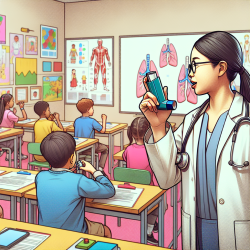Improving Online Therapy Skills Through Historical Insights: Lessons from 333 Cedar Street
As practitioners in the field of speech-language pathology, we constantly strive to improve our skills and create better outcomes for the children we serve. One often overlooked source of valuable insights is historical research, which can offer unique perspectives and lessons applicable to contemporary practice. A prime example is the research article "333 Cedar Street: an oral history. A chapter in the history of contemporary medicine" by A.J. Viseltear, published in the Yale Journal of Biology and Medicine.
This paper delves into the history of the Yale University School of Medicine, providing excerpts and colloquies from interviews that explore various aspects of premedical and medical school life. While the focus is on historical accounts, the thematic clusters identified in the research offer valuable lessons for modern practitioners, particularly those involved in online therapy services like TinyEYE.
Key Lessons from Historical Insights
By examining the thematic clusters from the research, we can extract several key lessons that can help improve our online therapy practices:
- Understanding the Student Experience: The excerpts from students provide a deep understanding of the challenges and experiences faced by medical students. By empathizing with their journey, we can better understand the developmental stages and challenges faced by children in therapy, allowing us to tailor our approaches more effectively.
- Interdisciplinary Collaboration: The research highlights the importance of collaboration among different disciplines within the medical community. For online therapy practitioners, this underscores the value of working closely with educators, parents, and other healthcare providers to create a holistic support system for the child.
- Adapting to Change: The history of medical education at Yale reveals how the institution adapted to changes over time. This adaptability is crucial for online therapists, who must continuously evolve their methods and technologies to meet the needs of their clients effectively.
- Data-Driven Decisions: The research emphasizes the importance of using case studies and data to explore contemporary issues in medicine. Similarly, online therapy practitioners should rely on data-driven decisions to assess the effectiveness of their interventions and make necessary adjustments.
Encouraging Further Research
While the historical insights from "333 Cedar Street" provide a solid foundation for improving our online therapy practices, they also highlight the importance of ongoing research. Practitioners are encouraged to delve deeper into historical and contemporary research to continually refine their skills and approaches. By staying informed and open to new ideas, we can ensure that we are providing the best possible care for the children we serve.
Implementing Historical Insights in Practice
To implement these historical insights effectively, consider the following steps:
- Professional Development: Engage in continuous professional development by attending workshops, webinars, and conferences that focus on both historical and contemporary research in speech-language pathology.
- Collaborative Networks: Build and maintain collaborative networks with other professionals in the field, including educators, healthcare providers, and researchers. This will facilitate the exchange of knowledge and best practices.
- Reflective Practice: Regularly reflect on your practice by reviewing case studies, collecting data, and assessing the outcomes of your interventions. Use this information to make informed decisions and improvements.
- Embrace Technology: Stay updated on the latest technological advancements in online therapy. Incorporate new tools and platforms that can enhance the effectiveness of your interventions.
By integrating these historical insights and taking proactive steps to enhance our practice, we can make significant strides in improving the outcomes for the children we serve through online therapy services.
To read the original research paper, please follow this link: 333 Cedar Street: an oral history. A chapter in the history of contemporary medicine.










